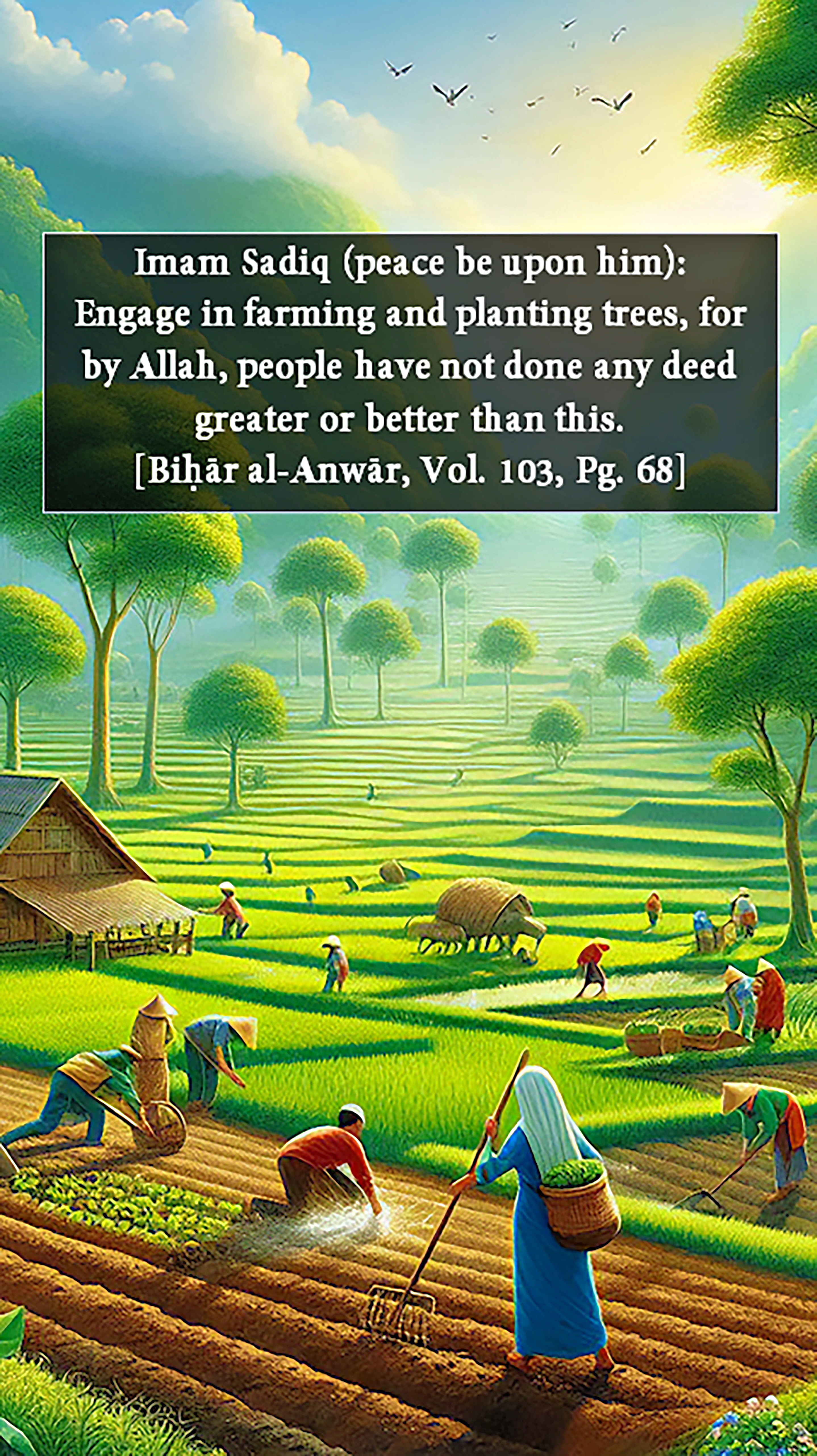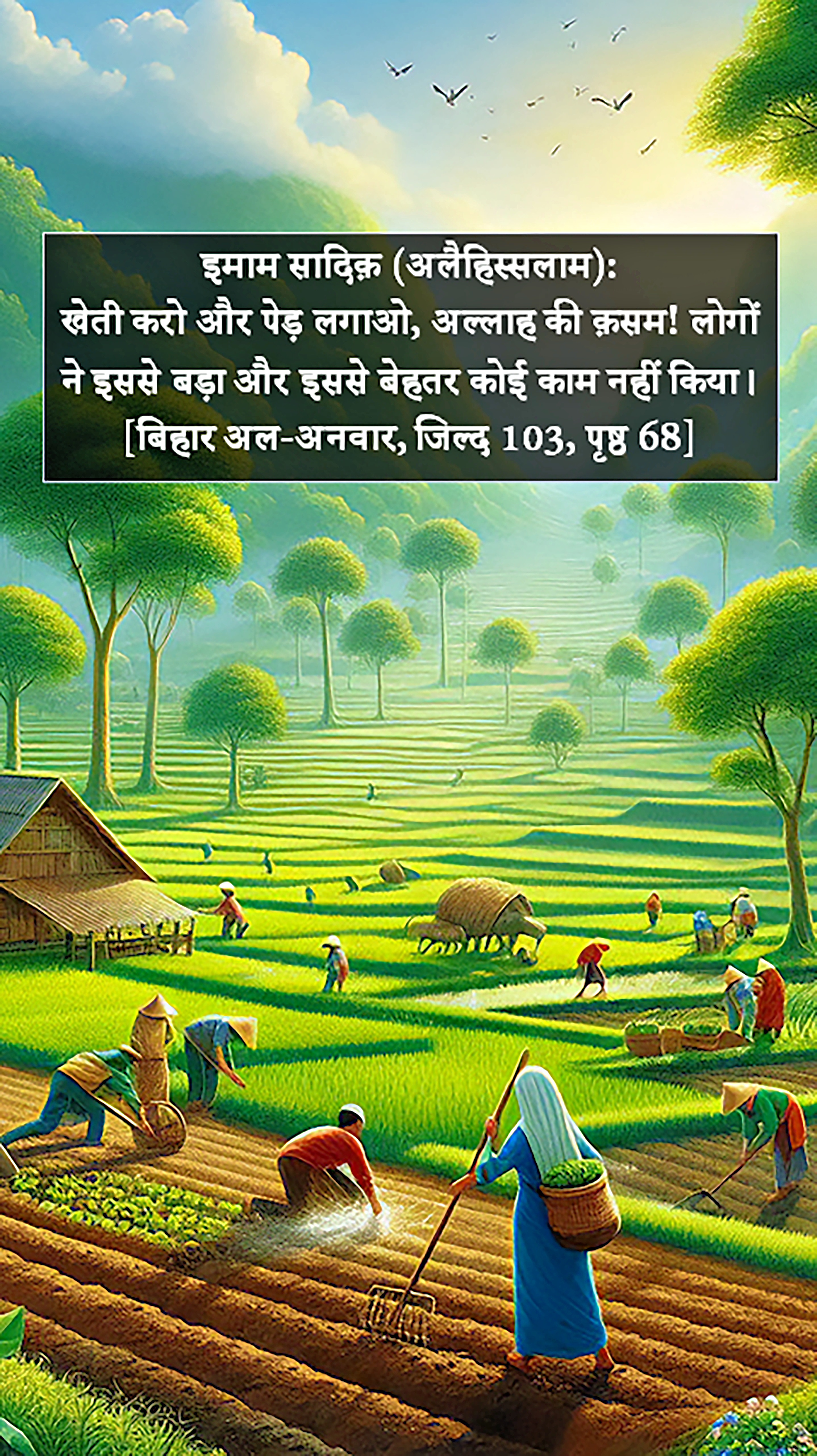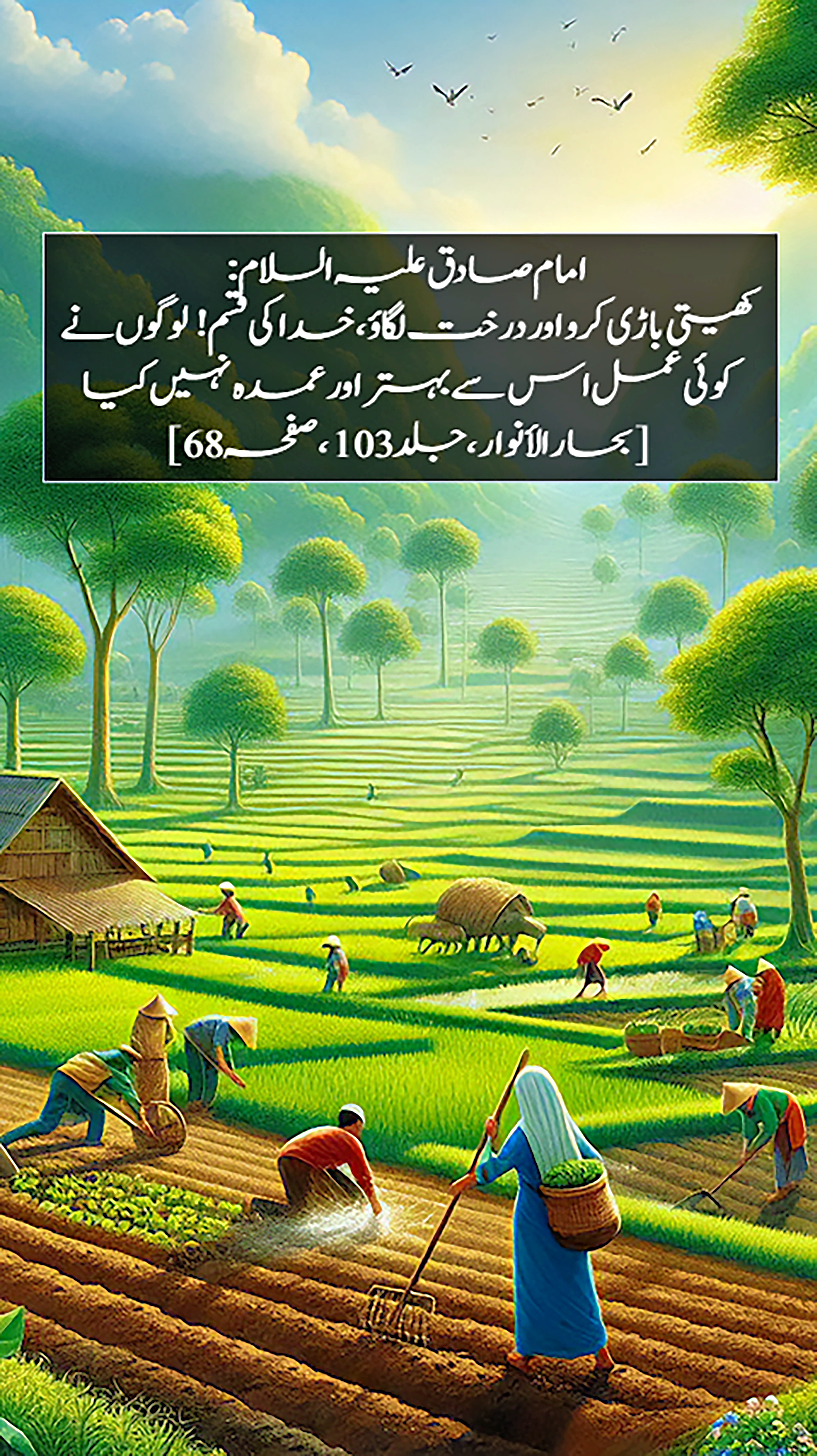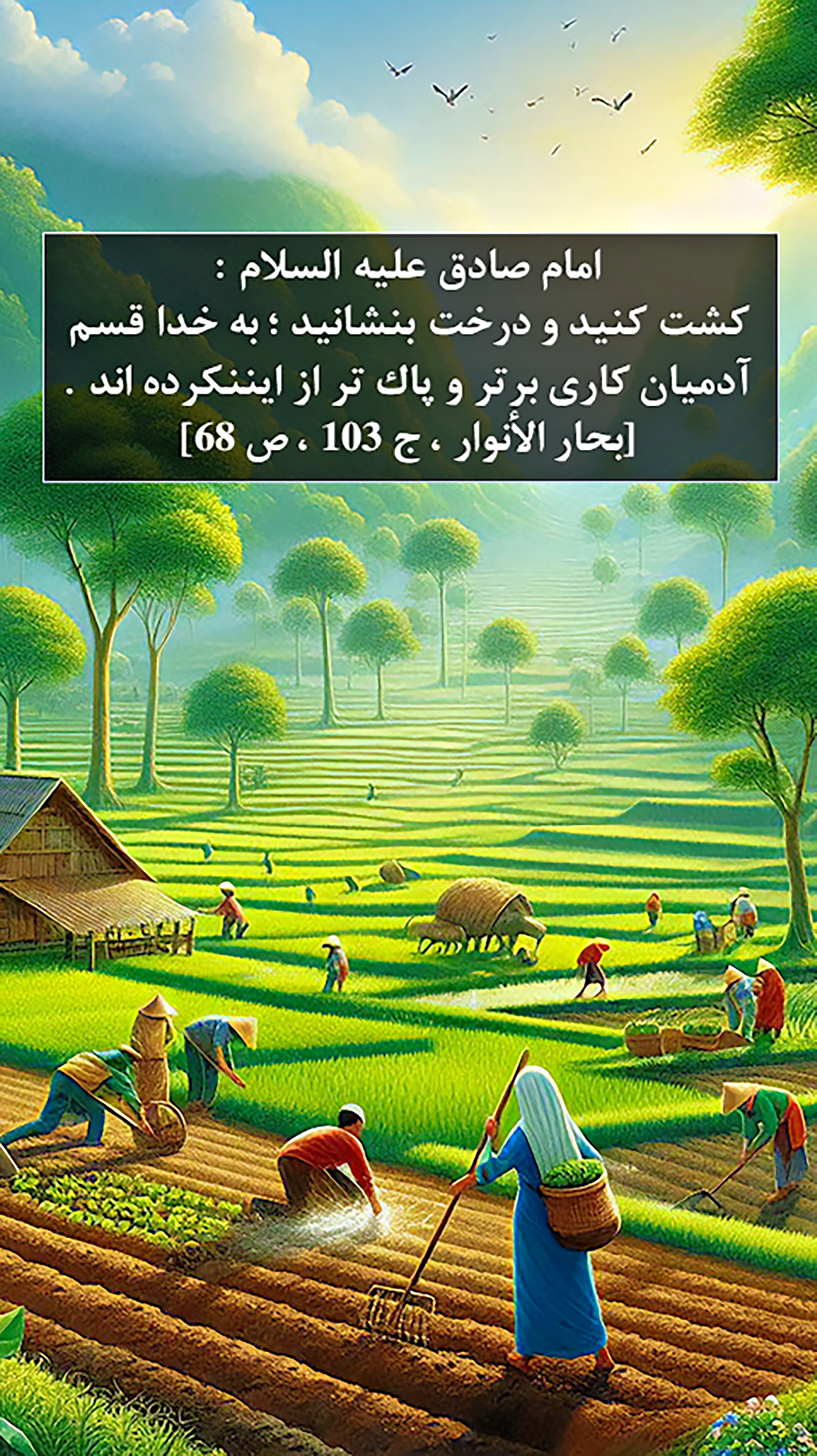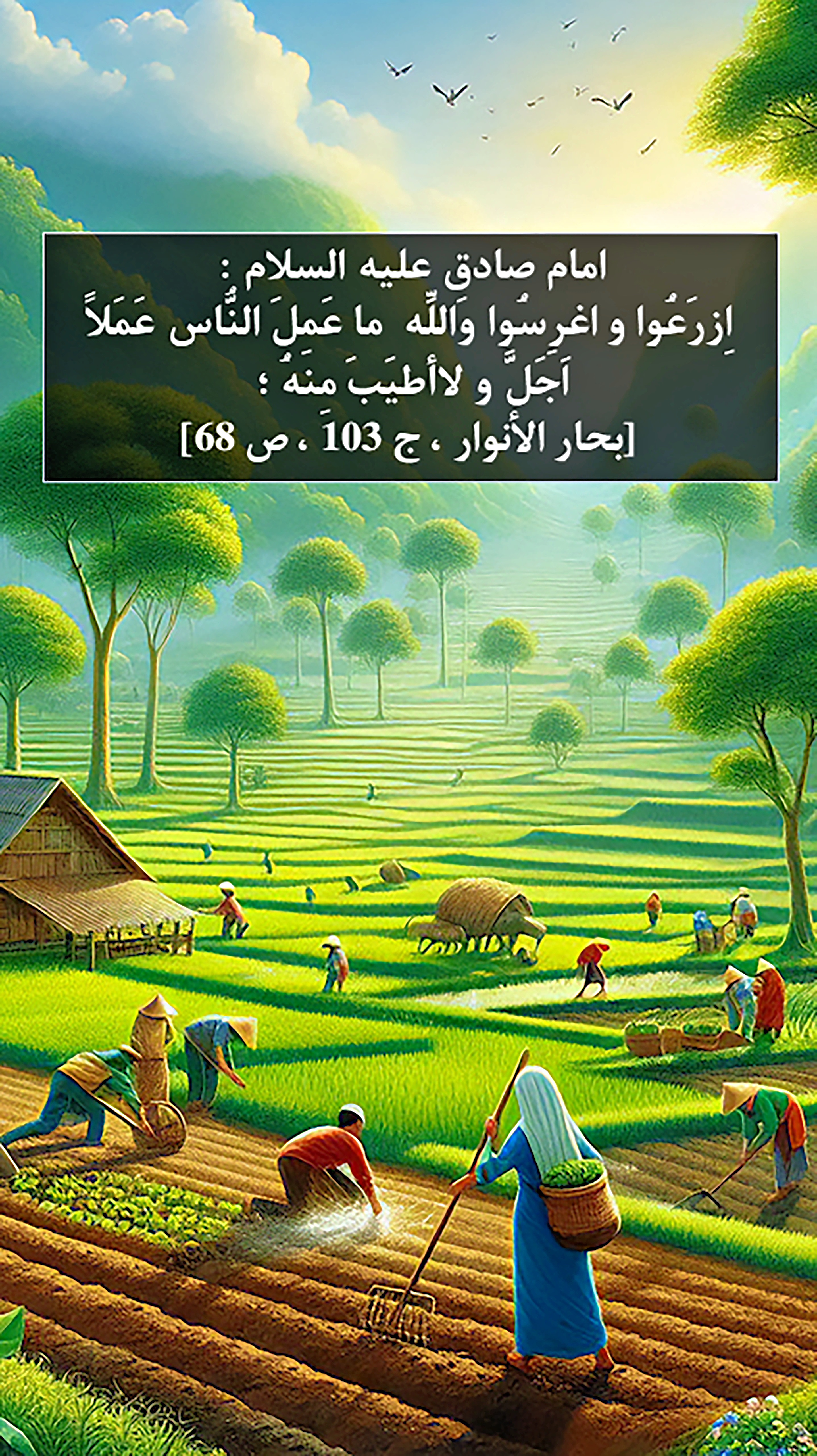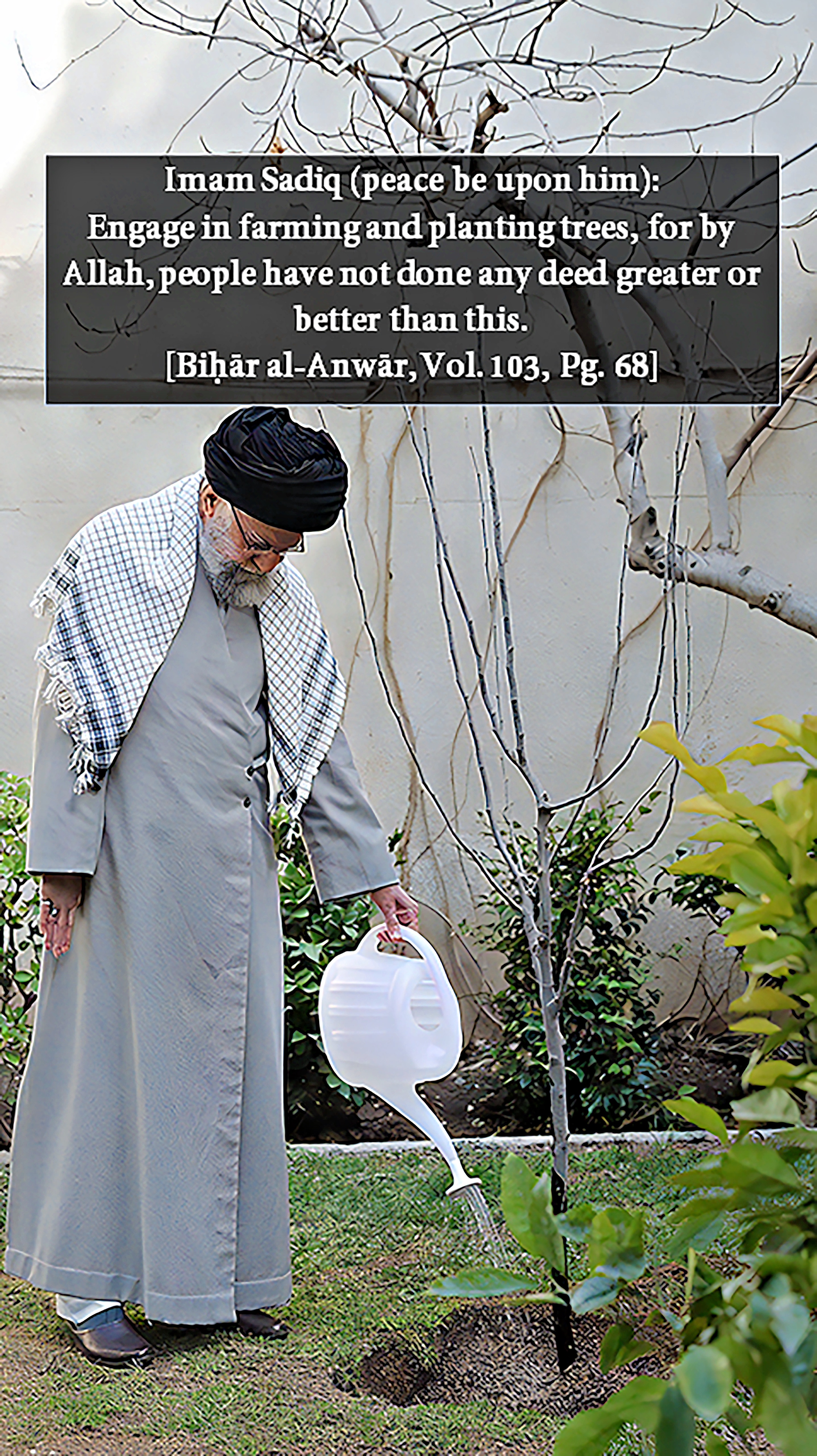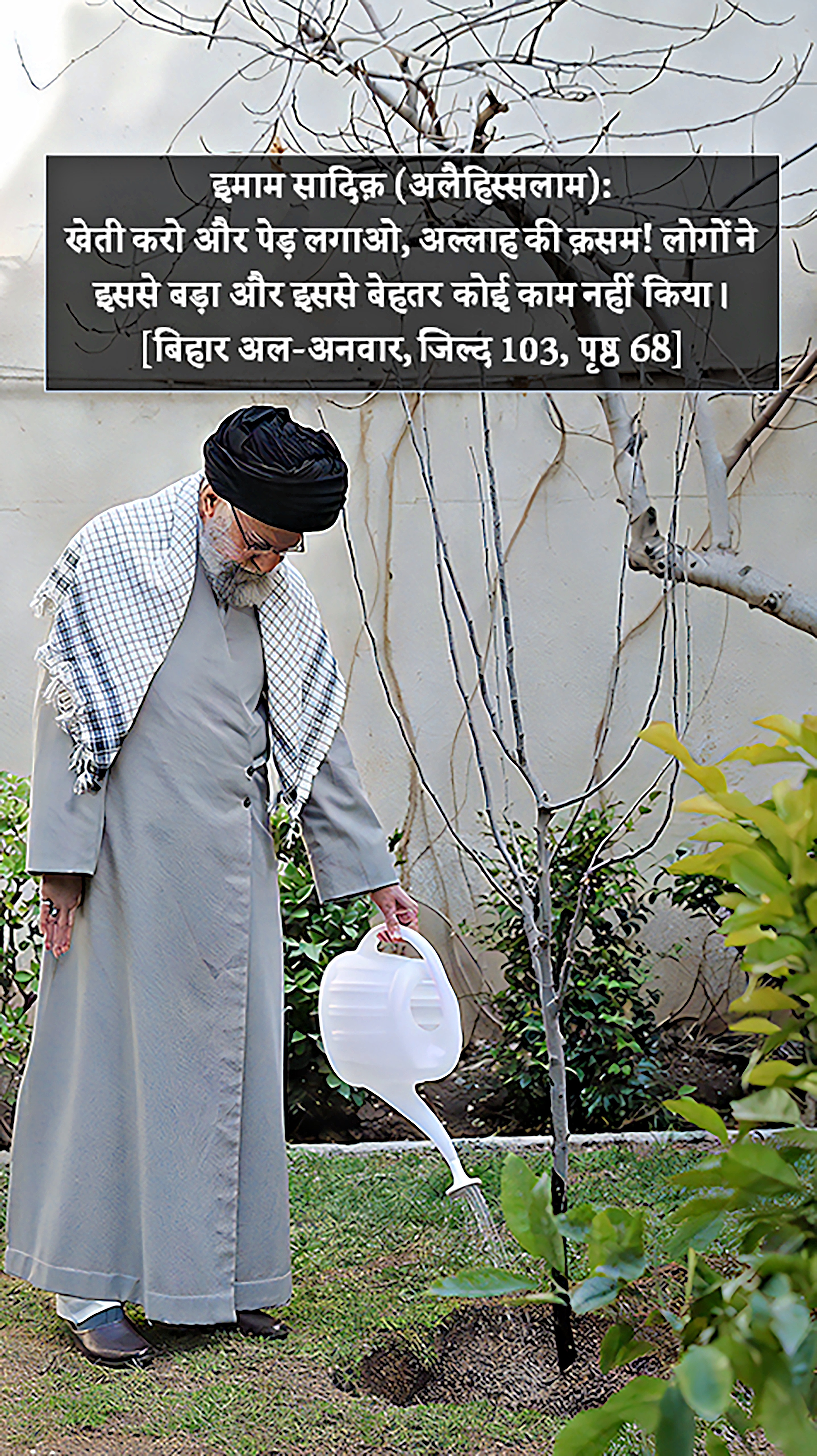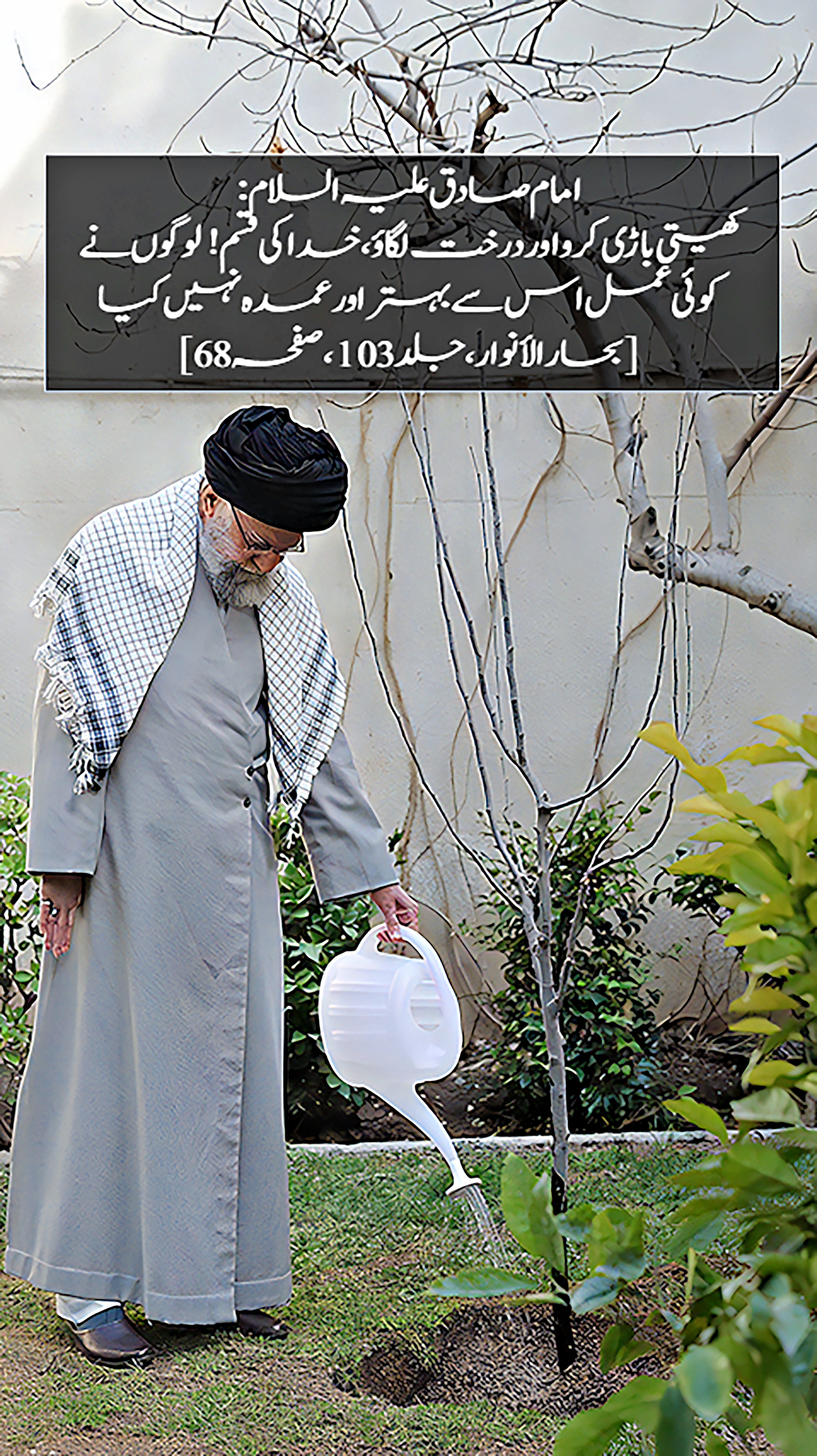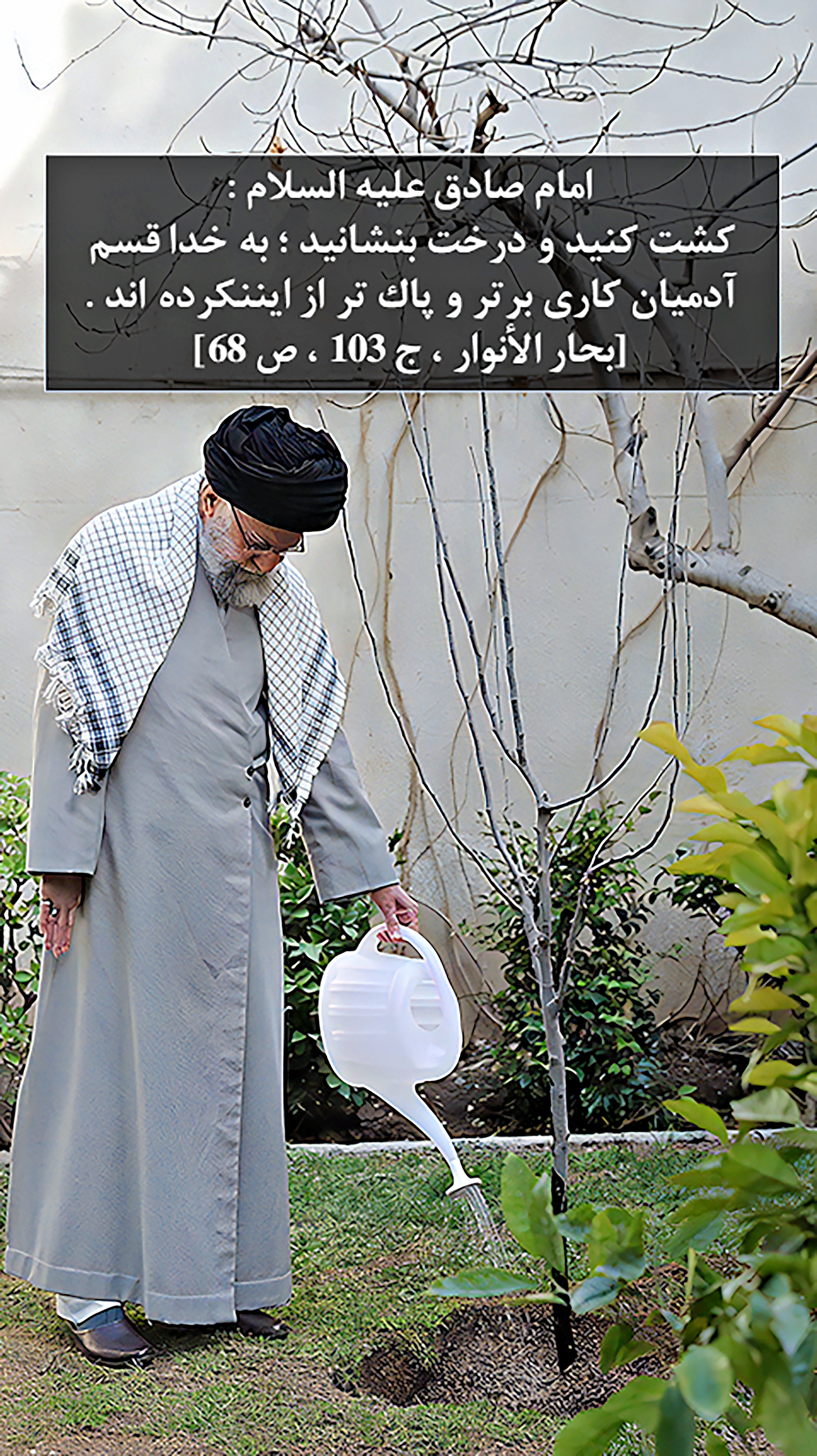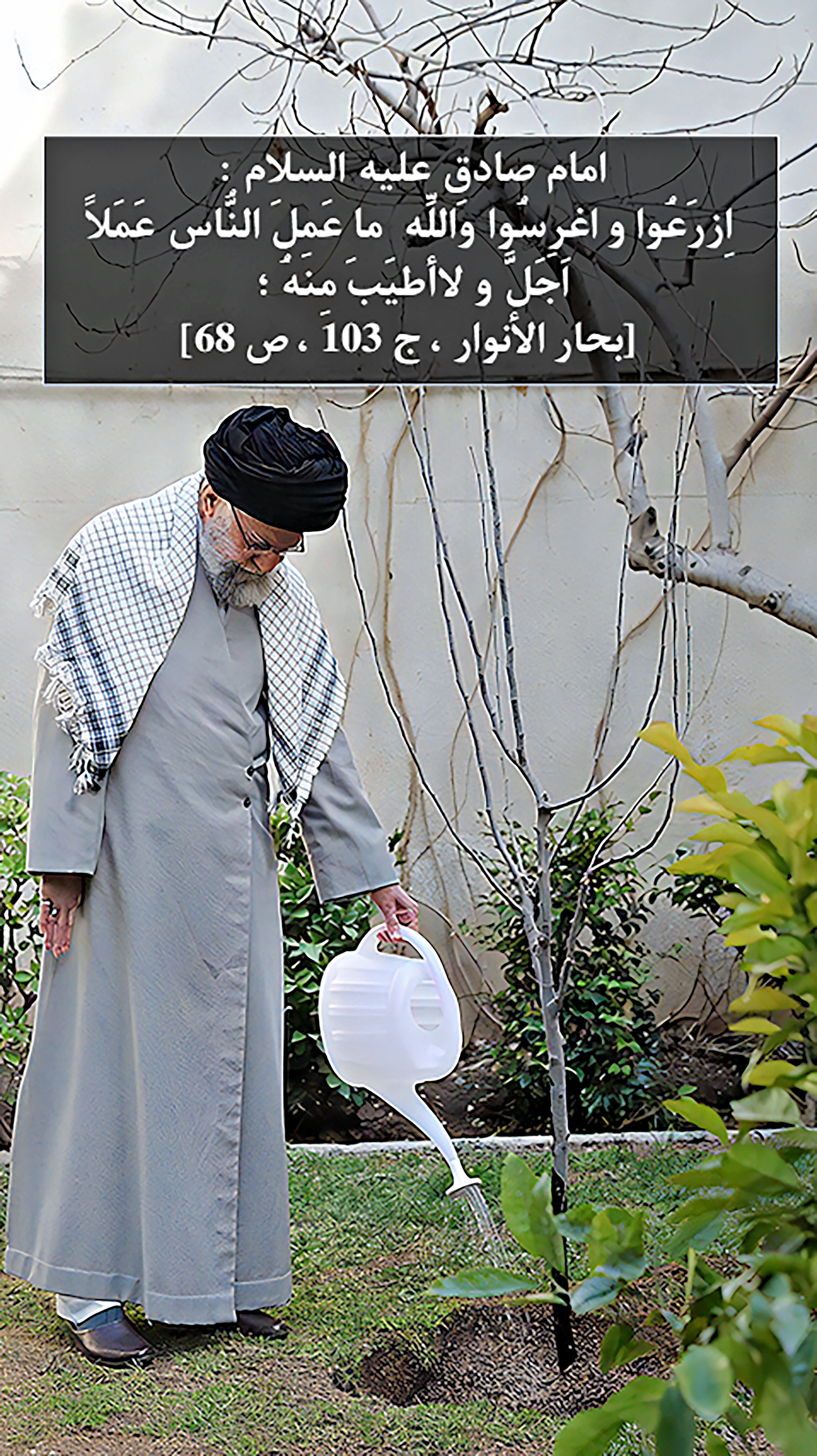KhanwadeAbuTalib.com
Posted by Mustafa Abbas on October 28, 2023 | Views: 256 | Ratings: 85
Please wait for pictures to download, click ">" for next picture, "<" for previous picture or wait for pictures to play in slideshow.
Imam Sadiq (peace be upon him):
Engage in farming and planting trees, for by Allah, people have not done any deed greater or better than this.
[Bihar al-Anwar, Vol. 103, Pg. 68]
Breakdown of the Saying
1. (Plant and cultivate):
- Planting: This refers to the act of sowing seeds in the ground, which is the foundation of agriculture. It encompasses a variety of agricultural practices, including the cultivation of crops for food, fiber, and other resources.
- Cultivating : This term usually refers to planting trees and other perennial plants. It highlights the importance of long-term agricultural investments that benefit future generations.
2. (By Allah):
- This phrase serves as an oath, emphasizing the truth and importance of the statement that follows. It underscores the divine endorsement and encouragement for the acts of planting and cultivating.
3. (People have not performed any deed more honorable or better than this):
- More honorable implies a deed that is noble, dignified, and of high moral value. It suggests that agriculture is not just an economic activity but a morally and spiritually esteemed one.
- Better : This indicates that, in terms of goodness and benefit, no other deed surpasses planting and cultivating. It highlights the wholesome and beneficial nature of agriculture for individuals and society.
Ethical Implications
1. Value of Hard Work: The statement honors the hard work involved in agriculture, encouraging diligence and persistence.
2. Respect for Creation: Engaging in agriculture fosters a deep respect for nature and the environment, recognizing the earth as a divine blessing that must be nurtured.
3. Community Service: Agriculture directly benefits the community by providing essential resources such as food, supporting the well-being and health of society.
Socio-Economic Implications
1. Employment Opportunities: Agriculture provides numerous job opportunities, especially in rural areas, reducing poverty and supporting economic stability.
2. Food Security: By promoting the cultivation of crops and trees, this teaching addresses the fundamental need for food security, ensuring that communities have access to nutritious food.
3. Economic Independence: Agricultural self-sufficiency reduces dependency on external food sources, fostering economic resilience and independence.
Environmental Stewardship
1. Biodiversity: Planting a variety of crops and trees helps maintain biodiversity, crucial for ecological balance and resilience.
2. Soil Health: Sustainable agricultural practices improve soil health, prevent erosion, and maintain fertility, ensuring long-term productivity.
3. Climate Mitigation: Trees and plants absorb carbon dioxide, playing a vital role in mitigating climate change by reducing greenhouse gases.
Modern Relevance
1. Sustainable Development: Integrating these teachings into modern agricultural policies promotes sustainable development, balancing economic growth with environmental conservation.
2. Resilient Communities: Encouraging local farming initiatives can create resilient communities capable of withstanding economic and environmental challenges.
3. Ethical Consumption: Raising awareness about the ethical implications of food production fosters responsible consumer behavior and supports sustainable practices.
Conclusion
Imam Sadiq's (peace be upon him) teaching on the importance of planting and cultivating serves as a timeless guide that integrates ethical, socio-economic, and environmental principles. By encouraging agriculture, this wisdom highlights the virtues of hard work, respect for nature, community service, and sustainability. Applying these principles in contemporary society can help address modern challenges such as food security, economic instability, and environmental degradation, promoting a more sustainable and ethical world.
On the occasion of Iran’s National Tree Planting Day, the Leader of the Islamic Revolution, Imam Khamenei, planted three tree saplings. These included an olive sapling representing the unique resistance of the Palestinian nation, a cypress sapling, and a fruit tree sapling. This tree planting, which is an annual tradition, took place in his office premises today (Tuesday), March 5, 2024.
During the event, the Leader spoke of the importance that Islam places on caring for nature. He pointed to the planting of an olive sapling and said, "To show our solidarity and empathy with the oppressed, but truly resilient people of Palestine, one of the trees planted today was an olive tree. This symbolic gesture was actually a way to extend our greetings to them and to say that we constantly remember the people of Palestine, even when we plant a tree.”
Imam Khamenei emphasized that planting trees is a profitable, rewarding investment. He noted that trees offer numerous advantages, like increasing oxygen levels and helping to reduce pollutants, making it a profitable investment choice.
continue reading by clicking here
Qur'anic verses and hadiths of Ahl al-Bayt (peace be upon them) and sayings in Arabic, Persian and English.
https://eitaa.com/noorunalanoor
https://www.youtube.com/@110Inspire
https://youtube.com/@mustafaabbas4668?si=EnSIkaIECMiOmarE
https://youtube.com/@mustafaabbas8978?si=EMJylUW9_zruJx95
